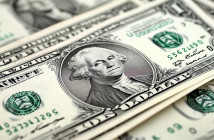Although US inflation has been trending lower, economists have forecast that in January the decline will have moderated owing to persistent price pressures in housing and an uptick in the prices of energy and used cars.
Tuesday’s consumer price index report from the Bureau of Labor Statistics is expected to show annual inflation at 6.2 per cent in January, down from 6.5 per cent the previous month, according to an economists’ forecast compiled by Bloomberg. That would represent the slowest rate since October 2021, but the smallest decrease in the annual rate since September, as higher petrol prices are expected to have boosted the headline figure.
Core CPI inflation, which strips out the volatile food and energy components, is expected to slow to an annual rate of 5.4 per cent, down from 5.7 per cent in December. High rents will have prevented a bigger drop in core inflation, said Barclays analysts, in addition to higher prices of used cars. After rising significantly at the start of the pandemic because of snarls in the global supply chain, used-car prices finally began to drop in recent months. But the latest reading of the closely watched Manheim used vehicle value index suggests that January could mark a pause in that decline.
Over the longer term, Barclays analysts said they had revised higher their CPI forecasts for the end of 2023 and 2024 because of the continuing strength of the US labour market. Last week, the Bureau of Labor Statistics reported that the US added more than half a million jobs in January, roughly triple the number that had been forecast. Kate Duguid
Will UK inflation encourage the Bank of England to slow down?
The UK’s January inflation figures on Wednesday will also be closely watched by investors and by the Bank of England as it strives to bring inflation back to its target of 2 per cent.
Economists polled by Reuters expect UK annual inflation to have slowed to a four-month low of 10.2 per cent. That would mark a decline from 10.5 per cent in December.
UK inflation accelerated last year to a peak in October of 11.1 per cent, but has slowed since then on the back of lower energy price growth. Most economists forecast it will continue to slow through this year.
Sandra Horsfield of Investec expects inflation to have “subsided further” in January because of “lower fuel prices and more intense competition among retailers amid an ongoing easing of supply chain disruptions and squeezed disposable incomes”.
However, policymakers will also closely monitor services and core inflation to assess the pace of domestically generated price pressures. Analysts expect core inflation, which strips out food and energy, to have slowed to 6.2 per cent in January, from 6.3 per cent in December.
Jobs data released on Tuesday will also be scrutinised for signs of an easing of labour market tightness. Analysts expect average earnings growth, excluding bonuses, to have accelerated to 6.5 per cent in December, from 6.4 per cent in the previous month.
Strong wage growth and higher inflation than expected could call into question the slowdown in the pace of the monetary tightening forecast at the next meeting on March 23. Markets are pricing a 0.25 percentage point rise after the bank lifted rates by 0.5 percentage points earlier this month but signalled it might soon have finished tightening. Valentina Romei
Will the stampede into Chinese equities continue?
Global investors have poured record sums into Chinese equities this year, buying up $21bn of shares so far in 2023.
The release of strong economic data after the lunar new year holiday has spurred investor confidence that China’s economy is recovering after zero-Covid restrictions were lifted in December, with the benchmark CSI 300 index rising more than 6.25 per cent year to date.
Analysts say robust inflows are likely to continue, with US growth expected to slow and retail investors yet to join the fray.
“Emerging markets are going to have a much better decade ahead than the past decade,” said Charlie Robertson, global chief economist at Renaissance Capital. “Unless you think the US can outperform again in the 2020s as much as it did in the 2010s then emerging markets and China look very interesting for long-term investment.”
Markets could also get a further boost from domestic buyers, according to Citigroup. The bank’s analysts say excess household deposits surged to as much as Rmb13tn owing to higher savings rates during the Covid-19 pandemic, leaving space for households to put their excess cash into equities.
“Flows could still benefit the financial market if confidence returns and households opt for not only ‘revenge spending’, but also ‘revenge risk-taking’,” the analysts said in a note.
However, long-term political issues, like “mounting concerns on the experience of the incoming administration”, as well as unfavourable growth figures — the IMF predicts Chinese growth may fall below 4 per cent over the next half decade — may mean China remains out of favour with some investors, Citi added. Martha Muir



